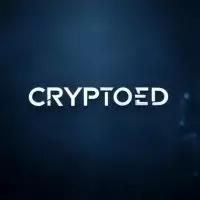All-time High
All-time Low
Volume(24h)
688.36M
Turnover rate
2.67%
Market Cap
25.8282B
FDV
25.8B
Circulating supply
94.68B
Total supply
94.68B
Max supply
Currency Calculator
{{conversion_one_currency}}
{{conversion_two_currency}}
| Exchange | Pairs | Price | Volume (24h) | Volume % | Confidence | Liquidity Score | Earn |
|---|---|---|---|---|---|---|---|
| {{val.marketPair}} | {{val.price}} | {{val.volume24h}} | {{val.volumePercent}} | Low Moderate High | {{val.effectiveLiquidity}} | Buy / Sell | |
Community sentiment

26%
74%


Bullish

Bearish
 The Oracle Has Awakened — The WINkLink Halloween Predict Challenge Begins!
The Oracle Has Awakened — The WINkLink Halloween Predict Challenge Begins!  Do you trust your instincts enough to outsmart the Oracle? The data streams are stirring, and $TRX is at the center of this Halloween prophecy! Predict the closing price before the Oracle locks its
Do you trust your instincts enough to outsmart the Oracle? The data streams are stirring, and $TRX is at the center of this Halloween prophecy! Predict the closing price before the Oracle locks its 
| Exchange | Pair | Price | Volume (24h) | Volume % | Confidence | Liquidity Score | Earn |
|---|---|---|---|---|---|---|---|
| {{val.marketPair}} | {{val.price}} | {{val.volume24h}} | {{val.volumePercent}} | Low Moderate High | {{val.effectiveLiquidity}} | Buy / Sell | |
About TRON
Where Can You Buy TRON (TRX)?
It is possible to [buy Tron](https://www.binance.com/en/buy-TRON) from dozens of the exchanges it is listed on - including Poloniex, Bancor, KuCoin, Binance, Bitfinex, Coinbene and others. However, it is not supported by Coinbase. Learn about converting your[ fiat to Bitcoin here](https://coinmarketcap.com/how-to-buy-bitcoin/) — the perfect gateway to purchasing altcoins.
How Is the TRON Network Secured?
TRON uses a consensus mechanism that is known as [delegated proof-of-stake](https://coinmarketcap.com/alexandria/glossary/delegated-proof-of-stake-dpos). TRX owners can freeze their cryptocurrency in order to get Tron Power, which means that they can vote for “super representatives” who serve as block producers. These block producers receive TRX rewards in exchange for verifying transactions, and these rewards are then distributed among the people who voted for them. According to TRON, this approach helps its blockchain to achieve higher levels of throughput.
How Many TRON (TRX) Coins Are There in Circulation?
TRON has a total supply of just over 100 billion tokens — and at the time of writing, about 71.6 billion of these are in circulation. When a token sale was held in 2017, 15.75 billion TRX was allocated to private investors, while an additional 40 billion were earmarked for initial coin offering participants. The Tron Foundation was given 34 billion, and a company owned by Justin Sun got 10 billion. All in all, this meant that 45% of TRX supply went to the founder and the project itself, while 55% was distributed among investors. Critics argue that this is a much higher ratio than what has been seen with other cryptocurrency projects.
What Makes TRON Unique?
TRON has positioned itself as an environment where content creators can connect with their audiences directly. By eliminating centralized platforms — whether they are streaming services, app stores or music sites — it is hoped that creators won’t end up losing as much commission to middlemen. In turn, this could also make content less expensive for consumers. Given how the entertainment sector is increasingly becoming digitized, TRON could have a headstart in applying blockchain technology to this industry. The company also says that it has a talented and experienced developer team, based around the world, that has been drawn from major companies such as Ripple Labs. Last but not least, whereas some other blockchain projects can be opaque about their plans for development, TRON offers a point of difference by delivering a roadmap that shows its intentions for the coming years.
Who Are the Founders of TRON?
TRON was founded by Justin Sun, who now serves as CEO. Educated at Peking University and the University of Pennsylvania, he was recognized by Forbes Asia in its 30 Under 30 series for entrepreneurs. Born in 1990, he was also associated with Ripple in the past — serving as its chief representative in the Greater China area.
What Is TRON (TRX)?
TRON (TRX) is a decentralized blockchain-based operating system developed by the Tron Foundation and launched in 2017. Originally TRX tokens were [ERC-20](https://coinmarketcap.com/alexandria/glossary/erc-20)-based tokens deployed on [Ethereum](https://coinmarketcap.com/currencies/ethereum/), but a year later they were moved to their own network. Initially, the project was created with the aim of providing full ownership rights to makers of digital content. The main goal is to help content creators (who receive only a small part of the income) and encourage them with more rewards for their work. How: invite content consumers to reward content makers directly (without intermediaries like YouTube, Facebook or Apple). The TRON software supports [smart contracts](https://coinmarketcap.com/alexandria/glossary/smart-contract), various kinds of blockchain systems, and decentralized applications aka dApps. The cryptocurrency platform uses a transaction model similar to [Bitcoin (BTC)](https://coinmarketcap.com/currencies/bitcoin/), namely UTXO. Transactions take place in a public ledger, where users can track the history of operations. Therefore, the platform was built to create a decentralized Internet and serves as a tool for developers to create dApps, acting as an alternative to Ethereum. Anyone can create [dApps](https://coinmarketcap.com/alexandria/glossary/decentralized-applications-dapps) on the TRON network, offer content, and in return receive digital assets as compensation for their efforts. The ability to create content and share it openly without hesitation regarding transaction fees is an undeniable advantage of TRON.
TRON News
-

Explore the latest trends in Bitcoin, Binance, and investor strategies. From institutional plays to DeFi innovations, understand how to navigate the crypto world.
Nov 05, 2025 at 05:30 am
-

Explore the crypto presale landscape with MoonBull, BullZilla, and emerging trends in 2025 coins. Discover potential ROI and community-driven ecosystems.
Nov 04, 2025 at 11:50 pm
-

Is BlockchainFX the crypto presale to watch in 2026? Dive into its potential, explosive growth, and why it's catching the eye of savvy investors.
Nov 03, 2025 at 07:50 pm
-

Tron and Monero show strength, but BlockDAG's Binance AMA and massive $431M presale ignite market frenzy. Is BlockDAG the best crypto to buy now?
Oct 23, 2025 at 04:00 am
-

Recent UK regulatory scrutiny of Justin Sun-linked HTX exchange raises concerns about financial rule violations and their impact on TRX.
Oct 22, 2025 at 11:55 pm
-

Is BullZilla the next crypto to deliver 100x returns? Amidst the buzz around cryptos, BullZilla emerges, blending meme appeal with deflationary mechanics.
Oct 22, 2025 at 05:45 pm
-

A look at TRX price action, key support levels, and market sentiment. Will TRX maintain its momentum, or is a pullback inevitable?
Oct 22, 2025 at 07:32 am
-

Dive into the dynamics of BlockDAG, Chainlink, and Cardano, exploring their innovative strides and market impacts in the evolving crypto landscape.
Oct 22, 2025 at 02:57 am
-

A look at Chainlink's technical support, Coinbase's NFT move, and BlockDAG's Genesis Day, shaping the crypto narrative.
Oct 22, 2025 at 02:00 am
Similar Coins





























































































Twitter
GitHub
Close